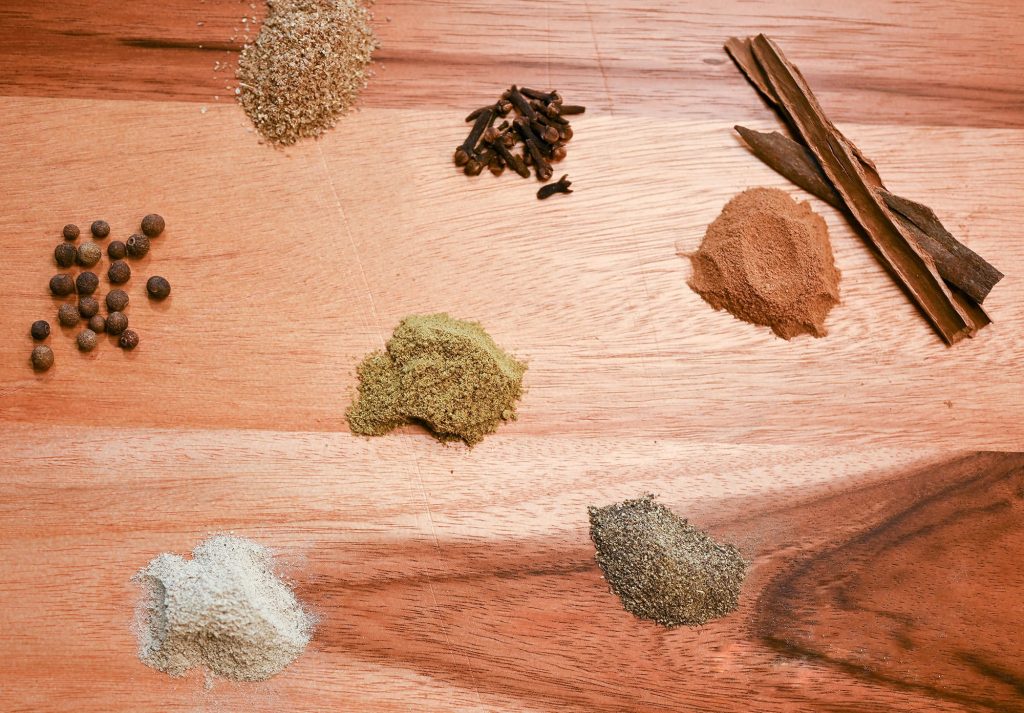In Dubai, spice blending is not just a culinary practice—it’s a journey through trade routes, ancestral memory, and cultural dialogue. Walking through the Spice Souk in Deira, each scent feels like a whisper from another land. That’s why spice blending classes in this city are more than recipes; they’re immersive workshops where culture, technique, and storytelling collide. With Indian, Persian, Emirati, and Levantine influences, Dubai is a true mosaic of flavors. Learning to blend spices here feels like decoding the soul of the region itself.
Spice Spoons at Anantara blends nature, tradition, and technique
Nestled in the calm of the Anantara World Islands, Spice Spoons offers a serene, hands-on experience in spice artistry. Led by professional chefs, students learn to balance cumin, coriander, sumac, cardamom, and ginger while cooking dishes infused with heritage. The workshop concludes with a meal prepared using your own custom blend. More than a cooking class, this is a sensory retreat. The sound of the sea, the warmth of fire, and the smell of toasted spices create an unforgettable atmosphere.
Learn directly from Dubai’s Indian home cooks through private sessions
Several platforms in Dubai, like Skilldeer, offer classes taught by Indian home cooks who’ve inherited generations of knowledge. These classes are usually intimate, held in cozy kitchens, and center around traditional masalas, biryani spice mixes, or Ayurvedic combinations. Instead of memorizing recipes, you absorb stories—like why turmeric is added at a certain time, or how mustard seeds must crackle to release their depth. It’s learning by feeling, not just measuring.
ICCA Dubai introduces structured spice education within global cooking courses
The International Centre for Culinary Arts (ICCA) in Dubai includes spice fundamentals in its amateur programs. While it isn’t exclusively about spice blending, students work with ingredients from all over the world—fennel from North Africa, saffron from Iran, dried lemons from the Gulf. The course introduces technical vocabulary, heat management, and ingredient sequencing, forming a strong base for anyone serious about mastering flavor.
The Spice Souk in Deira is a classroom in disguise
No spice education is complete without a walk through Dubai’s famous Spice Souk. Located in Old Dubai, it’s a place where learning happens through conversation, bargaining, and scent. Vendors explain which blends are used for meat, which for rice, and which to cure headaches. You’ll see Iranian dried limes, Somali cinnamon bark, and locally dried za’atar. Most importantly, you’ll understand spice not just as ingredient—but as identity. For those curious about context, this is the ideal starting point.

Pop-up cooking workshops feature fusion blends and modern flavors
Across Dubai, pop-up workshops in places like Al Quoz or Jumeirah Lakes Towers offer spice-blending classes with a twist. Here, instructors teach you how to fuse Indian garam masala with Emirati loomi or incorporate Japanese yuzu with traditional Gulf spices. These sessions are ideal for adventurous palates and often hosted in creative kitchens or co-working food spaces. Blending becomes a form of invention—each participant leaves with a jar of something entirely their own.
Virtual spice classes bring Dubai’s kitchens to your home
If attending in person isn’t feasible, several chefs in Dubai now offer virtual spice-blending experiences. Some focus on Indian or Persian traditions, others offer Gulf-specific blends like Bezar or Bahraini Baharat. Through video calls, instructors guide you step by step, from toasting to grinding. You can ask questions, adjust to your own pantry, and end the class with a custom mix you made from scratch.
Arabic spice blends like Bezar and Za’atar are finally gaining spotlight
For years, Indian spice mixes dominated the spotlight in Dubai. But recently, Emirati chefs have begun reviving and teaching native blends such as Bezar—a complex mix often used in rice, stews, or meat rubs. These blends usually involve hand-roasting, grinding, and storing in clay jars. Some Emirati culinary schools and home-based chefs now offer workshops specifically on these blends, helping preserve an important part of Gulf culinary history.
Workshops often explore health aspects tied to traditional spice use
Beyond flavor, many classes delve into the medicinal value of spices. Turmeric for inflammation, cardamom for digestion, fennel for bloating—such lessons draw on Ayurveda, Traditional Arabic & Islamic Medicine (TAIM), and local remedies. Some classes, especially those led by nutritionists or holistic chefs, create blends for health goals: immunity, metabolism, or stress relief. In these sessions, you don’t just learn what tastes good—you learn what heals.
Blending spices in Dubai connects you to a larger cultural rhythm
Dubai’s spice-blending classes aren’t about following steps. They’re about tuning in. To the pulse of migration, the breath of old recipes, and the warmth of human connection. Whether you’re toasting cumin in a beachside resort or mixing za’atar in a Deira apartment, you’re stepping into a living tradition. A blend isn’t just powder—it’s story, memory, and love.
This article was created by the editorial team at www.few.ae.
